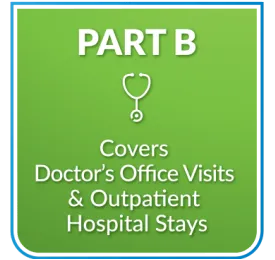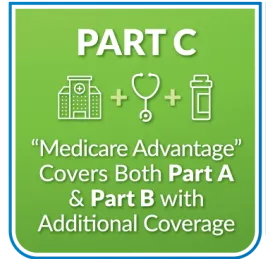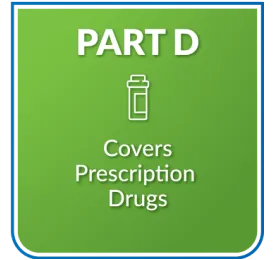Medicare Guidance Made Simple with Support You Can Trust
Personalized, one-on-one Medicare help for seniors 65+, whether you're in Kentucky or across the country — with no cost, no pressure, and a promise to make things easy.
Part A - Hospital Services




Medicare Supplement Insurance, also known as “Medigap,” fills in the gaps of Original Medicare and is offered by private companies.
Traditional Medicare covers many costs, but not all, and it does not fully pay for covered healthcare services and supplies. A Medicare Supplement Insurance (Medigap) policy can help pay for some of the remaining healthcare costs, including:
Copayments
Coinsurance
Deductibles
Medicare Supplement Insurance, also known as Medigap, is designed to help cover out-of-pocket costs that Original Medicare (Parts A and B) doesn’t pay.
Original Medicare itself consists of two parts: Part A (Hospital Insurance) and Part B (Medical Insurance).
Medicare Part A covers inpatient care, which includes care received in hospitals, skilled nursing facilities, and—in certain circumstances—home healthcare.
Most people become automatically eligible for Medicare Part A when they turn 65, especially if they’re already receiving retirement benefits from Social Security or the Railroad Retirement Board.
You may also qualify for Medicare Part A before age 65 if you have a disability, end-stage renal disease (ESRD), or amyotrophic lateral sclerosis (ALS).
To be eligible, you must be a U.S. citizen or a legal permanent resident who has lived in the United States for at least five consecutive years.
Medicare Part A covers:
Inpatient hospital care
Skilled home health services (when certain conditions are met)
Skilled nursing facility care (as long as custodial care isn’t the only care you need)
Hospice care
Beneficiaries under Medicare Part A receive coverage for key hospital expenses related to inpatient care, including:
A semi-private room
Nursing services
Meals
Medications required during your inpatient stay
Other related hospital services and supplies
Inpatient care under Part A may also be provided through:
Critical access hospitals
Acute care hospitals
Long-term care hospitals
Inpatient mental health facilities
Inpatient rehabilitation facilities
Approved clinical research studies
Medicare Part A does not cover the cost of A private hospital room (unless medically necessary), Private-duty nursing, Personal care items such as shampoo, telephone access, or television rental.
Part A also does not fully cover the cost of blood. If the hospital receives blood from a blood bank at no charge, you won't have to pay. However, if the hospital must purchase blood for you, you are responsible for the cost of the first three units you receive during a calendar year.
Medicare Part A Costs
You typically don’t pay a monthly premium for Medicare Part A (Hospital Insurance) if you or your spouse paid Medicare taxes while working.
You qualify for premium-free Medicare Part A at age 65 if:
You are receiving retirement benefits from Social Security or the Railroad Retirement Board.
You or your spouse had Medicare-covered government employment.
You may also qualify for premium-free Part A before age 65 if:
You have a disability and are receiving Social Security or Railroad Retirement Board benefits.
You have End-Stage Renal Disease (ESRD).
You have Amyotrophic Lateral Sclerosis (ALS).
If You’re Not Eligible for Premium-Free Part A, you can still purchase Medicare Part A coverage.
If you paid Medicare taxes for less than 30 quarters, your monthly premium is approximately $458.
If you paid Medicare taxes for 30–39 quarters, your premium is approximately $252.
Part A Inpatient Hospital Costs
(Deductible: $1,408 per benefit period)
Coinsurance includes:
Days 1–60: $0
Days 61–90: $352 per day
Days 91 and beyond: $704 per day for each lifetime reserve day (up to 60 days in your lifetime)
Medicare Part A Enrollment
You are automatically enrolled in Medicare Part A if
You are 65 or older and receiving Social Security or Railroad Retirement Board benefits.
Coverage starts:
On the first day of the month you turn 65
If your birthday is on the 1st of the month, your coverage begins the month before you turn 65
Medicare Part A Eligibility
You are eligible for Medicare Part A if:
You are 65 or older and a U.S. citizen, or a legal resident for at least five continuous years
You are receiving Social Security or Railroad Retirement Board benefits
You are under 65 with a disability, ESRD, or ALS
Medicare Part A Premium Payment Options
If you need to pay for Part A, here are four ways to pay:
Online through your Medicare account
Use a credit or debit card to make payments via your Medicare.gov account.
Direct debit from your bank savings account
Set up a one-time or recurring payment from your bank.
Medicare Easy Pay (Recommended)
A free service that automatically deducts your monthly premium from your checking or savings account on the 20th of each month.
Mail check to Medicare


